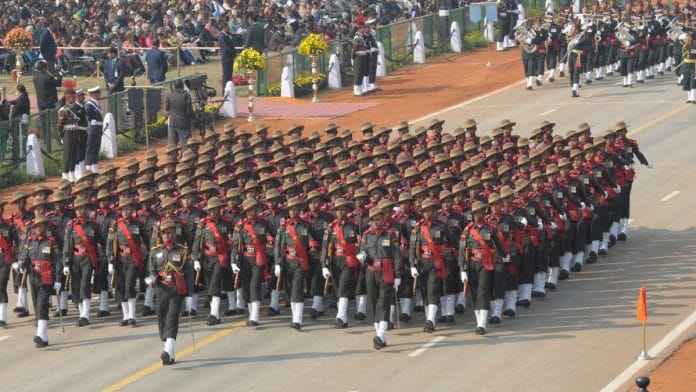New Delhi: Two battalions of the Assam Rifles along with a Sector Headquarters—totalling about 2,000 troops—have been moved to Jammu from Nagaland following a spike in terror activities and the upcoming Assembly elections.
Sources in the defence establishment told ThePrint that the additional troops have been stationed in the Doda region.
The deployment, which was in the works for over a month, comes ahead of the first Assembly election in the Union territory following the abrogation of Article 370 in 2019. The polls will be held from 18 September to 1 October.
The UT has seen an upswing in terrorist incidents since 2021 with more and more civilians and security personnel targeted. The forces have lost over 52 personnel in terror attacks in Jammu since 2021.
In recent years, Jammu regions’s Doda, Kishtwar, Ramban, Kathua, Udhampur, Reasi, Rajouri and Poonch districts have been the most affected.
One of the major reasons J&K has seen a rise in terrorism is due to the infiltration of nearly 40 to 50 hardened and well-trained terrorists.
The situation has been worsened by an intelligence vacuum, lack of counter-ambush tactics, along with thinned out deployment of the Rashtriya Rifles (RR) units over the years. Command issues and the need to project normalcy are also among the reasons behind the terror surge, ThePrint reported earlier.
The first attack in 2024 was in April in Kunda Top village in Rajouri’s Thanamandi. More attacks took place in May, June, July and August.
Earlier this year, the Army had boosted its strength in the Jammu region to a division level, by bringing in personnel from the reserves of the Northern Command as well as the Western Command.
After taking charge as the Chief of Army Staff at the end of June, General Upendra Dwivedi visited forward areas of Poonch on his maiden official trip outside the national capital. Within a month, the general visited the Jammu region again to review the preparedness of security forces.
(Edited by Tikli Basu)
Also read: Security beefed up in Jammu region ahead of polls but attacks since 2021 point to pattern






